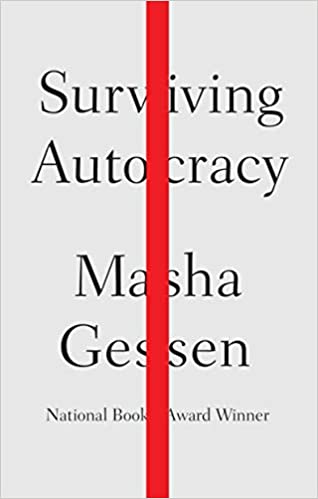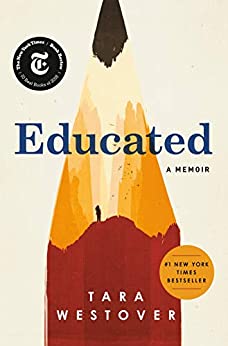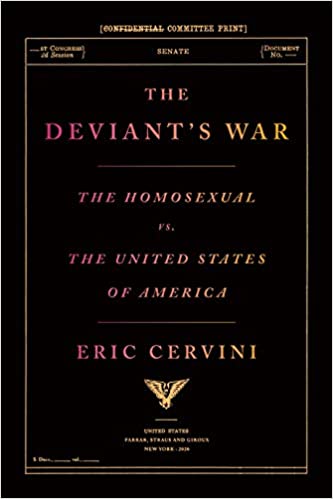Featured New Releases

CULT OF GLORY
by Doug J. Swanson
A twenty-first century reckoning with the legendary Texas Rangers that does justice to their heroic moments while also documenting atrocities, brutality, oppression, and corruption
The Texas Rangers came to life in 1823, when Texas was still part of Mexico. Nearly 200 years later, the Rangers are still going–one of the most famous of all law enforcement agencies. In Cult of Glory, Doug J. Swanson has written a sweeping account of the Rangers that chronicles their epic, daring escapades while showing how the white and propertied power structures of Texas used them as enforcers, protectors and officially sanctioned killers.
Cult of Glory begins with the Rangers’ emergence as conquerors of the wild and violent Texas frontier. They fought the fierce Comanches, chased outlaws, and served in the U.S. Army during the Mexican War. As Texas developed, the Rangers were called upon to catch rustlers, tame oil boomtowns, and patrol the perilous Texas-Mexico border. In the 1930s they began their transformation into a professionally trained police force.
Countless movies, television shows, and pulp novels have celebrated the Rangers as Wild West supermen. In many cases, they deserve their plaudits. But often the truth has been obliterated. Swanson demonstrates how the Rangers and their supporters have operated a propaganda machine that turned agency disasters and misdeeds into fables of triumph, transformed murderous rampages–including the killing of scores of Mexican civilians–into valorous feats, and elevated scoundrels to sainthood. Cult of Glory sets the record straight.
Beginning with the Texas Indian wars, Cult of Glory embraces the great, majestic arc of Lone Star history. It tells of border battles, range disputes, gunslingers, massacres, slavery, political intrigue, race riots, labor strife, and the dangerous lure of celebrity. And it reveals how legends of the American West–the real and the false–are truly made.

BROTHER ROBERT
by Annye C. Anderson
This intimate memoir by blues legend Robert Johnson’s stepsister includes new details about his family, music, influences, tragic death, and musical afterlife.
Though only twenty-seven years young and relatively unknown at the time of his tragic death in 1938, Robert Johnson’s enduring recordings have solidified his status as a progenitor of the Delta Blues style. And yet, while his music has retained the steadfast devotion of modern listeners, much remains unknown about the man who penned and played these timeless tunes. Few people alive today actually remember what Johnson was really like, and those who do have largely upheld their silence — until now.
In Brother Robert, nonagenarian Annye Anderson sheds new light on a real-life figure largely obscured by his own legend: her kind and incredibly talented stepbrother, Robert Johnson. This book chronicles Johnson’s unconventional path to stardom — from the harrowing story behind his illegitimate birth, to his first strum of the guitar on Anderson’s father’s knee, to the genre-defining recordings that would one day secure his legacy.
Along the way, Anderson not only shares personal anecdotes, but also colorful recollections of Johnson passed down by members of their family — the people who knew him best. She also outlines the contours of Johnson’s working life in Memphis, never-before-disclosed details about his romantic history, and all of his favorite things, from foods and entertainers to brands of tobacco and pomade. Together, these stories don’t just bring the mythologized Johnson back down to earth; they preserve both his memory and his integrity.
For decades, Anderson and her family have ignored the tall tales of Johnson “selling his soul to the devil” and the speculative to fictionalized accounts of his life that passed for biography. Brother Robert is here to set the record straight. Featuring a foreword by Elijah Wald and a Q&A with Anderson, Lauterbach, Wald, and Peter Guralnick, this book paints a vivid portrait of an elusive figure who forever changed the musical landscape as we know it.

COUNTDOWN 1945
by Chris Wallace
From Chris Wallace, the veteran journalist and anchor of Fox News Sunday, comes an electrifying behind-the-scenes account of the 116 days leading up to the American attack on Hiroshima.
April 12, 1945: After years of bloody conflict in Europe and the Pacific, America is stunned by news of President Franklin D. Roosevelt’s death. In an instant, Vice President Harry Truman, who has been kept out of war planning and knows nothing of the top-secret Manhattan Project to develop the world’s first atomic bomb, must assume command of a nation at war on multiple continents—and confront one of the most consequential decisions in history. Countdown 1945 tells the gripping true story of the turbulent days, weeks, and months to follow, leading up to August 6, 1945, when Truman gives the order to drop the bomb on Hiroshima.
In Countdown 1945, Chris Wallace, the veteran journalist and anchor of Fox News Sunday, takes readers inside the minds of the iconic and elusive figures who join the quest for the bomb, each for different reasons: the legendary Albert Einstein, who eventually calls his vocal support for the atomic bomb “the one great mistake in my life”; lead researcher J. Robert “Oppie” Oppenheimer and the Soviet spies who secretly infiltrate his team; the fiercely competitive pilots of the plane selected to drop the bomb; and many more.
Perhaps most of all, Countdown 1945 is the story of an untested new president confronting a decision that he knows will change the world forever. Truman’s journey during these 116 days is a story of high drama: from the shock of learning of the bomb’s existence, to the conflicting advice he receives from generals like Dwight D. Eisenhower and George Marshall, to wrestling with the devastating carnage that will result if he gives the order to use America’s first weapon of mass destruction.
But Countdown 1945 is more than a book about the atomic bomb. It’s also an unforgettable account of the lives of ordinary American and Japanese civilians in wartime—from “Calutron Girls” like Ruth Sisson in Oak Ridge, Tennessee, to ten-year-old Hiroshima resident Hideko Tamura, who survives the blast at ground zero but loses her mother and later immigrates to the United States, where she lives to this day—as well as American soldiers fighting in the Pacific, waiting in fear for the order to launch a possible invasion of Japan.
Told with vigor, intelligence, and humanity, Countdown 1945 is the definitive account of one of the most significant moments in history.
Still Hot in Non-Fiction & Biography

DARK MIRROR
by Barton Gellman
From the three-time Pulitzer Prize-winning author of the New York Times bestseller Angler, who unearthed the deepest secrets of Edward Snowden’s NSA archive, the first master narrative of the surveillance state that emerged after 9/11 and why it matters, based on scores of hours of conversation with Snowden and groundbreaking reportage in Washington, London, Moscow and Silicon Valley
Edward Snowden chose three journalists to tell the stories in his Top Secret trove of NSA documents: Barton Gellman of The Washington Post, Glenn Greenwald of The Guardian and filmmaker Laura Poitras, all of whom would share the Pulitzer Prize for Public Service. Poitras went on to direct the Oscar-winning Citizen Four. Greenwald wrote an instant memoir and cast himself as a pugilist on Snowden’s behalf.
Barton Gellman took his own path. Snowden and his documents were the beginning, not the end, of a story he had prepared his whole life to tell. More than 20 years as a top investigative journalist armed him with deep sources in national security and high technology. New sources reached out from government and industry, making contact on the same kinds of secret, anonymous channels that Snowden used. Gellman’s old reporting notes unlocked new puzzles in the NSA archive. Long days and evenings with Snowden in Moscow revealed a complex character who fit none of the stock images imposed on him by others.
Gellman now brings his unique access and storytelling gifts to a true-life spy tale that touches us all. Snowden captured the public imagination but left millions of people unsure what to think. Who is the man, really? How did he beat the world’s most advanced surveillance agency at its own game? Is government and corporate spying as bad as he says?
Dark Mirror is the master narrative we have waited for, told with authority and an inside view of extraordinary events. Within it is a personal account of the obstacles facing the author, beginning with Gellman’s discovery of his own name in the NSA document trove. Google notifies him that a foreign government is trying to compromise his account. A trusted technical adviser finds anomalies on his laptop. Sophisticated impostors approach Gellman with counterfeit documents, attempting to divert or discredit his work. Throughout Dark Mirror, the author describes an escalating battle against unknown digital adversaries, forcing him to mimic their tradecraft in self-defense.
Written in the vivid scenes and insights that marked Gellman’s bestselling Angler, Dark Mirror is an inside account of the surveillance-industrial revolution and its discontents, fighting back against state and corporate intrusions into our most private spheres. Along the way it tells the story of a government leak unrivaled in drama since All the President’s Men.

THE SPLENDID AND THE VILE
by Erik Larson
On Winston Churchill’s first day as prime minister, Adolf Hitler invaded Holland and Belgium. Poland and Czechoslovakia had already fallen, and the Dunkirk evacuation was just two weeks away. For the next twelve months, Hitler would wage a relentless bombing campaign, killing 45,000 Britons. It was up to Churchill to hold his country together and persuade President Franklin Roosevelt that Britain was a worthy ally—and willing to fight to the end.
In The Splendid and the Vile, Erik Larson shows, in cinematic detail, how Churchill taught the British people “the art of being fearless.” It is a story of political brinkmanship, but it’s also an intimate domestic drama, set against the backdrop of Churchill’s prime-ministerial country home, Chequers; his wartime retreat, Ditchley, where he and his entourage go when the moon is brightest and the bombing threat is highest; and of course 10 Downing Street in London. Drawing on diaries, original archival documents, and once-secret intelligence reports—some released only recently—Larson provides a new lens on London’s darkest year through the day-to-day experience of Churchill and his family: his wife, Clementine; their youngest daughter, Mary, who chafes against her parents’ wartime protectiveness; their son, Randolph, and his beautiful, unhappy wife, Pamela; Pamela’s illicit lover, a dashing American emissary; and the advisers in Churchill’s “Secret Circle,” to whom he turns in the hardest moments.
The Splendid and the Vile takes readers out of today’s political dysfunction and back to a time of true leadership, when, in the face of unrelenting horror, Churchill’s eloquence, courage, and perseverance bound a country, and a family, together.

SURVIVING AUTOCRACY
by Masha Gessen
As seen on MSNBC Morning Joe and heard on NPR All Things Considered: the bestselling, National Book Award-winning journalist offers an essential guide to understanding, resisting, and recovering from the ravages of our tumultuous times.
In the run-up to the 2016 election, Masha Gessen stood out from other journalists for the ability to convey the ominous significance of Donald Trump’s speech and behavior, unprecedented in a national candidate. Within forty-eight hours of his victory, the essay “Autocracy: Rules for Survival” had gone viral, and Gessen’s coverage of his norm-smashing presidency became essential reading for a citizenry struggling to wrap their heads around the unimaginable. Thanks to the special perspective that is the legacy of a Soviet childhood and two decades covering the resurgence of totalitarianism in Russia, Gessen has a sixth sense for signs of autocracy—and the unique cross-cultural fluency to delineate its emergence to Americans. This incisive book provides an indispensable overview of the calamitous trajectory of the past few years. Gessen not only highlights the corrosion of the media, the judiciary, and the cultural norms we hoped would save us but also tells us the story of how a short few years have changed us, from a people who saw ourselves as a nation of immigrants to a populace haggling over a border wall, heirs to a degraded sense of truth, meaning, and possibility. Surviving Autocracy is an inventory of ravages but also a beacon to recovery—or to enduring, and resisting, an ongoing assault.

EDUCATED: A MEMOIR
by Tara Westover
An unforgettable memoir about a young girl who, kept out of school, leaves her survivalist family and goes on to earn a PhD from Cambridge University
Born to survivalists in the mountains of Idaho, Tara Westover was seventeen the first time she set foot in a classroom. Her family was so isolated from mainstream society that there was no one to ensure the children received an education, and no one to intervene when one of Tara’s older brothers became violent. When another brother got himself into college, Tara decided to try a new kind of life. Her quest for knowledge transformed her, taking her over oceans and across continents, to Harvard and to Cambridge University. Only then would she wonder if she’d traveled too far, if there was still a way home.

THE DEVIANT'S WAR
by Eric Cervini
In 1957, Frank Kameny, a rising astronomer working for the U.S. Defense Department in Hawaii, received a summons to report immediately to Washington, D.C. The Pentagon had reason to believe he was a homosexual, and after a series of humiliating interviews, Kameny, like countless gay men and women before him, was promptly dismissed from his government job. Unlike many others, though, Kameny fought back.
Based on firsthand accounts, recently declassified FBI records, and forty thousand personal documents, Eric Cervini’s The Deviant’s War unfolds over the course of the 1960s, as the Mattachine Society of Washington, the group Kameny founded, became the first organization to protest the systematic persecution of gay federal employees. It traces the forgotten ties that bound gay rights to the Black Freedom Movement, the New Left, lesbian activism, and trans resistance. Above all, it is a story of America (and Washington) at a cultural and sexual crossroads; of shocking, byzantine public battles with Congress; of FBI informants; murder; betrayal; sex; love; and ultimately victory.
